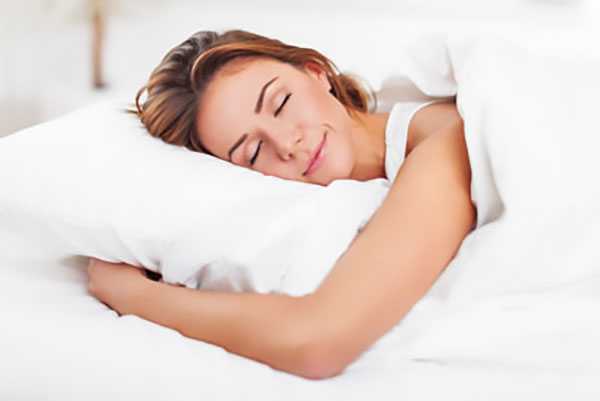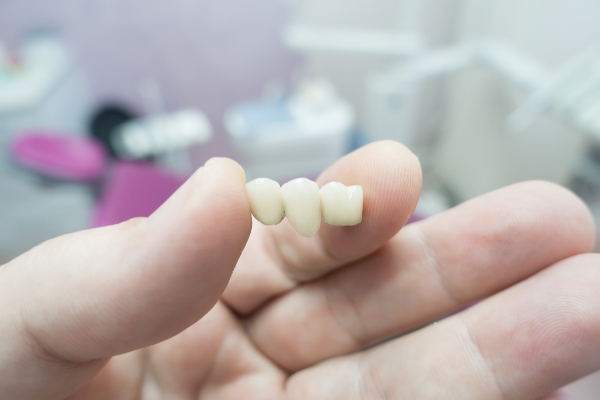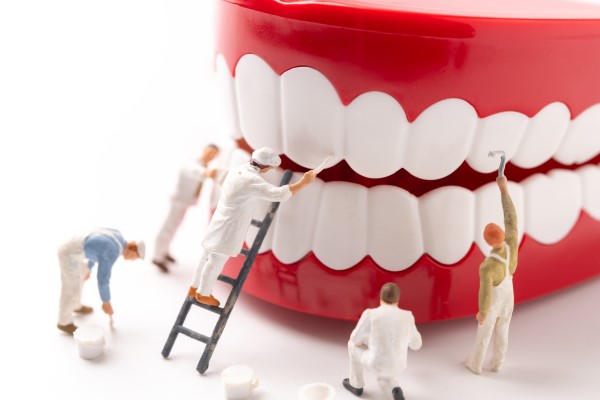Dental Alternatives to CPAP Machines for Sleep Apnea [Oral Appliance]

Sleep apnea is a serious medical condition that can be treated in a variety of ways. Most medical professionals administer CPAP machines to treat sleep apnea; however, dental professionals have the ability to offer oral appliance therapy, which is said to be just as effective.
Want to learn more about oral appliance therapy for treating sleep apnea? CPAP machines are known to produce positive results; however, using an oral appliance may be easier. Keep reading to find out more!
Dental alternatives to CPAP machines for sleep apnea: oral appliances
The information below outlines a couple of oral appliance options to treat sleep apnea.
Tongue-retaining device
A tongue-retaining device is a special type of oral appliance that is used to help patients who suffer from sleep apnea. The purpose of this oral appliance is for it to hold the tongue in a more forward position, which prevents the airway from getting blocked off. Throughout the night, while the patient sleeps, the appliance will keep the tongue held in a place, thus reducing the chances of sleep apnea symptoms.
This oral appliance is referred to as a dental splint and it is made entirely of plastic and closely resembles a pacifier with a hole in it. The tongue rests inside of this hole so that the airway is able to be more open, making it less likely for obstruction to occur.
Snoring commonly affects one's sleep apnea, which can make the chances of the airway becoming obstructed a lot higher. With a tongue-retaining device, the patient is less likely to snore throughout the night because the tongue is held forward. And, because the tongue is held forward, the mouth is also held in a different position. This position allows for more airflow to reach the back of the throat.
Mandibular advancement device (MAD)
A mandibular advancement device is another common type of oral appliance that can be used to treat sleep apnea. This oral appliance looks very similar to a mouth guard used in sports or a nightguard that protects the teeth against bruxism. Like mouthguards, the MAD snaps into place over the lower or upper portion of teeth. On either side of the oral appliance are small metal hinges. These metal hinges help keep the lower jaw in a forward position while the patient is asleep.
Keeping the jaw in a forward position allows for a more open airway. Through the night, the patient is less likely to suffer from obstruction because their jaw is held in position by the MAD.
Contact us today!
Questions regarding oral appliances for sleep apnea treatment should be directed to a dental professional. When attempting to find an alternative to a CPAP machine, it is best to consult with a dentist.
If you would like to know more about treating sleep apnea through oral appliance therapy then reach out to our office so that we can help you. We would be happy to get you started with the treatment that you need!
Request an appointment here: https://brimhalldentalgroup.com or call Brimhall Dental Group at (661) 249-1122 for an appointment in our Bakersfield office.
Check out what others are saying about our services on Yelp: Read our Yelp reviews.
Recent Posts
Are you looking for CPAP alternatives to treat your sleep apnea? Obstructive sleep apnea is a common condition that impacts millions of individuals all across the globe. Due to this condition, the patient’s airway closes while they are asleep. This can lead to symptoms like difficulty staying asleep throughout the night, snoring, morning headaches, and…
Sleep apnea is a fairly common medical condition that affects millions of Americans every day and, in some cases, can have life-threatening side effects. To get the right kind of help for your apnea, it first helps to understand the causes of this sleep condition, what the different causes mean for treatment, and how you…
Seeking treatment for sleep apnea is important for your general health. Your general dentist can detect signs of this sleep disorder during a comprehensive dental exam. The sleep doctor can work with your dentist to correct the problem. Here are the details about when to see a dentist for sleep apnea.This sleep disorder makes a…
Snoring is not the only sign of sleep apnea. It is a significant sleep condition that may have a negative impact on your health and quality of life in a short amount of time. Aside from feeling tired and drowsy throughout the day, untreated sleep apnea makes you vulnerable to different major health problems, including…


